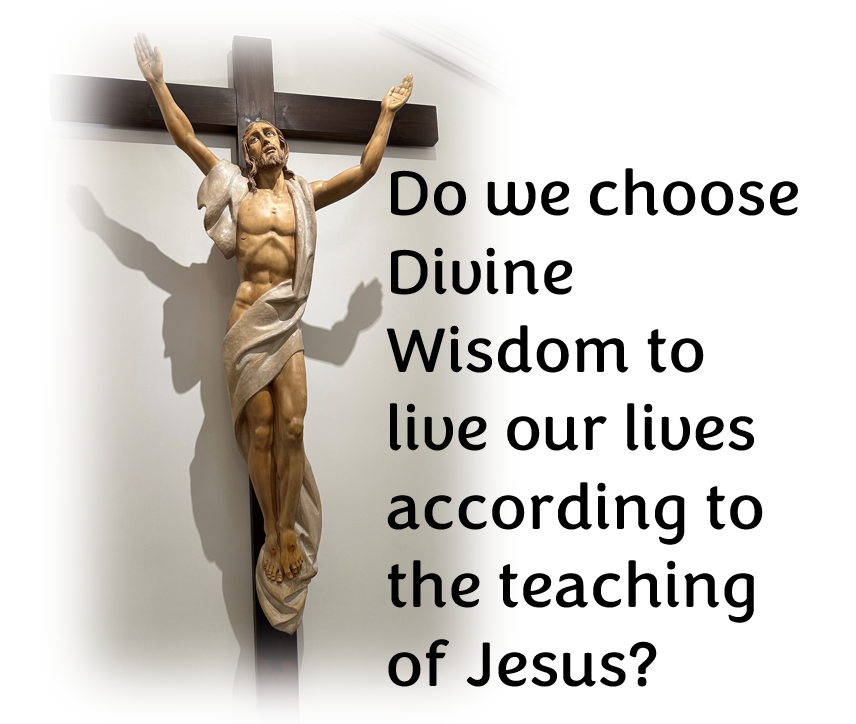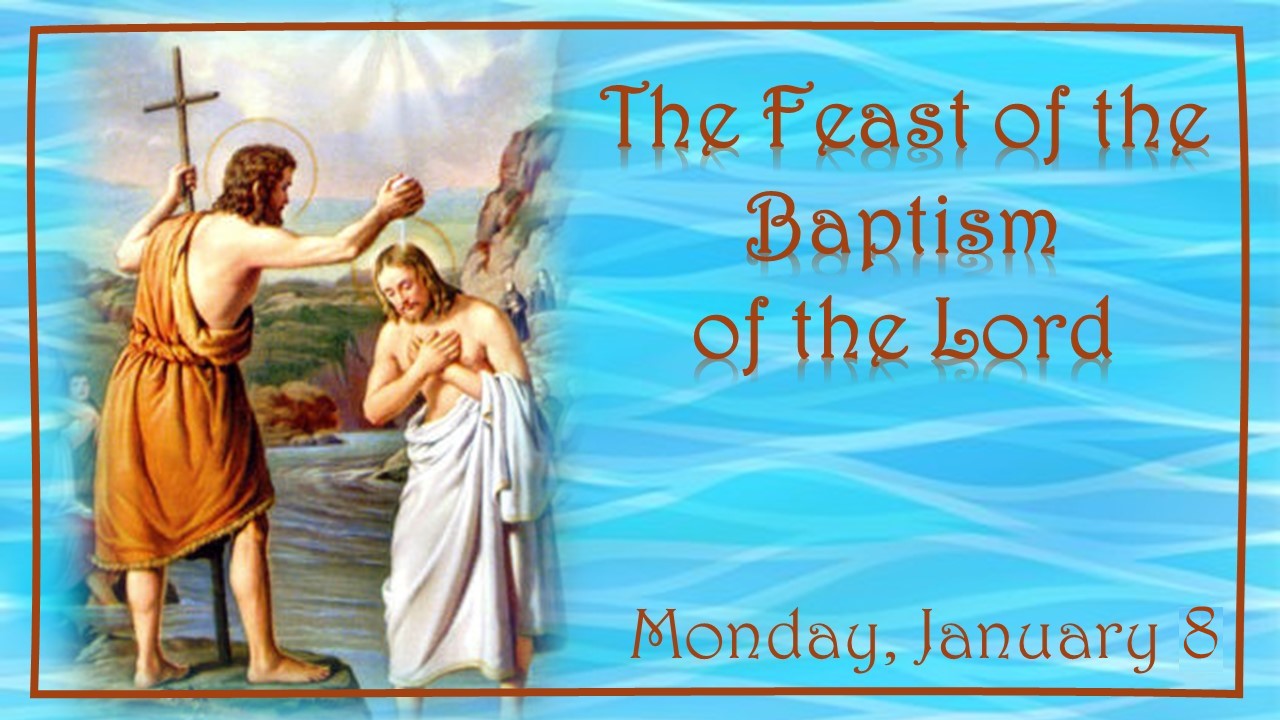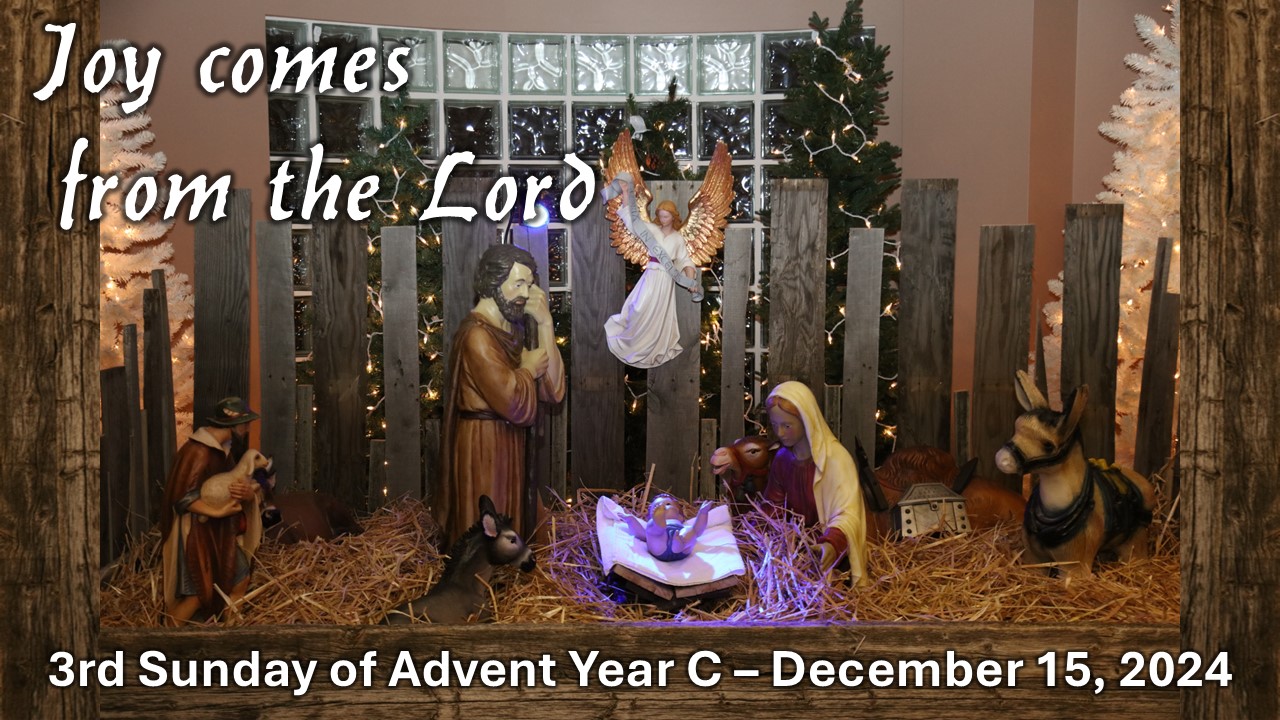
22nd Sunday in Ordinary Time Year C ~ August 28, 2022
CHOOSING HUMILITY
In our recent time some words are disappearing from our day-to-day life and humility is one of them. We all like to boast of our achievements, careers, businesses, educational qualifications, families, and wealth etc. These all lead us to pride, arrogance, and ego. However, humility takes over everything if chosen with sincere hearts. Holy Father reflects on the value of humility in these words “Humility is the “golden rule”. “Advancing”, for Christians, means “lowering themselves”. It is precisely on the humble path, chosen by God, that love, and charity proceed. The whole history of faith is made of humility and “speaks of humility to us all”. This likewise applies to the historical event of Jesus’ Birth. It seems that God wanted every event “to be concealed, that it not be made public”, that it be, as it were, overshadowed by the Holy Spirit”. Therefore, everything happens on the road of humility. God, humble, lowers himself: he comes among us and lowers himself — and he continues to humble himself even to the Cross”. The creation of Adam on God’s image from the mud was the beginning of humility but pride and desire to become equal to God created such a rift that led to death as St. Paul says.
In the Gospels Blessed Virgin Mary, at the Annunciation, also humbles herself: she does not properly understand, but she is free: she grasps only the essential and says ‘yes’. She is humble: ‘May God’s will be done’. She entrusts her soul to God’s will”. “Joseph, her betrothed, also lowers himself and takes this great responsibility upon his shoulders”. Joseph “also says ‘yes’ to the angel when in his dream the angel tells him of this truth. The attitude of Mary and Joseph shows that “to reach us, God’s whole love takes the path of humility. The humble God who wanted to walk with his people”. “God, humble and so good. The patient God. This is different from the attitude of idols; idols are powerful and make themselves heard: ‘it is I who command here!’”. In the Garden of Gethsemane, we experience the humility of Jesus Christ our Saviour “not my but yours’ will be done”. Jesus’ humility which ends on the Cross, and this is the golden rule for Christians: to persevere, to advance and to humble themselves. There is no other path. Unless we humble ourselves, we are not Christian.(Please read Philippians 2”5-11).
The saints in our Catholic faith are best examples of humility as they learned to humble themselves by listening and obeying the Lord. Below are some quotes from the saints for us to reflect on the value of humility and make our lives pleasing to the Lord.
To be taken with love for a soul, God does not look on its greatness, but the greatness of its humility. – St. John of the Cross.
“There is something in humility which strangely exalts the heart.”
“It was pride that changed angels into devils; it is humility that makes men as angels.”
– Saint Augustine
He who wants to learn true humility should reflect upon the Passion of Jesus. The soul’s true greatness is in loving God and in humbling oneself in His presence, completely forgetting oneself and believing oneself to be nothing; because the Lord is great, but He is well-pleased only with the humble; He always opposes the proud.
– St Faustina, Divine Mercy in my Soul.
The first degree of humility is the fear of God, which we should constantly have before our eyes.
– St. Louis de Blois
The most powerful weapon to conquer the devil is humility. For, as he does not know at all how to employ it, neither does he know how to defend himself from it.
– Saint Vincent de Paul
There is more value in a little study of humility and in a single act of it than in all the knowledge in the world.
– Saint Teresa of Avila
Humility is the mother of many virtues because from it obedience, fear, reverence, patience, modesty, meekness and peace are born. He who is humble easily obeys everyone, fears to offend anyone, is at peace with everyone, is kind with all.
– St Thomas of Villanova
Do you wish to rise? Begin by descending. You plan a tower that will pierce the clouds? Lay first the foundation of humility.
– Saint Augustine
The highest point of humility consists in not merely acknowledging one’s abjection, but in taking pleasure therein, not from any want of breadth or courage, but to give the more glory to God’s Divine Majesty, and to esteem one’s neighbour more highly than oneself.
– St Francis De Sales
There is no doubt that God will never be wanting to us, provided that He finds in us that humility which makes us worthy of His gifts, the desire of possessing them, and the promptitude to co-operate industriously with the graces He gives us.’
– St. Ignatius of Loyola
Humility will always make us content in our daily dealings with others. Jesus is the perfect example of that humility who though a King, was obedient and humble “For meek and humble of heart”. Let me share a story with you to help us to be humble and content with what we have.
A cosmic god had a horse. The horse was beautiful, and it had many good qualities. But it wanted to be more perfect in every way. It especially wanted to become beauty unparalleled.
One day the horse said to the cosmic god, “0 Lord, you have given me beauty. You have given me other good qualities. I am so grateful to you. But how I wish you could make me more beautiful. I would be extremely, extremely grateful if you could make me more beautiful.”
The cosmic god said, “I am more than ready to make you more beautiful. Tell me in what way you want to be changed.”
The horse said, “It seems to me that I am not well proportioned. My neck is too short. If you can make my neck a little longer, my upper body will be infinitely more beautiful. And if you can make my legs much longer
and thinner, then I will look infinitely more beautiful in my lower body.”
The cosmic god said, “Amen” Then immediately he made a camel appear in place of the horse. The horse was so disheartened that it started to cry, “0 Lord, I wanted to become more beautiful. In what way is this kind of outer form more beautiful?”
The cosmic god said, “This is exactly what you asked for. You have become a camel.”
The horse cried, “Oh no, I do not want to become a camel I wish to remain a horse. As a horse, everybody appreciated my good qualities. Nobody will appreciate me as a camel.”
The cosmic god said, “Never try to achieve or receive more than I have given you. If you want to lead a desire-life, then at every moment you will want more and more. But you have no idea what the outcome will be. If you cry for a longer neck and legs, this is what will happen. Each thing in my creation has its own good qualities. The camel is not as beautiful as you are, but it carries heavy loads and has a tremendous sense of responsibility.
In a similar way the Book of Sirach is inviting us to be humble and live our lives in humility. There is a great lesson for us that humility gives us a true estimate of ourselves so that we should do what ought to be done and avoid what is beyond our understanding and strength. However, on other hand pride will lead us to destruction and astray from our purpose of life “many are lofty and famous, but to the humble he reveals his plan”.
According to Merriam Webster Dictionary “Humility means “the state of being humble.” Both it and humble have their origin in the Latin word humilis, meaning “low.” Humble can be used to describe what is ranked low by others, as in “persons of humble origins.” People also use the word of themselves, and things associated with themselves; if you describe yourself as “but a humble editor” or refer to your home as your “humble abode,” you are saying that neither you nor your home is very impressive.
Therefore, Jesus is teaching etiquettes of our Christian living by reminding everyone to be humble. In the scene from today’s Gospel passage, Jesus, in the home of one of the chief Pharisees, observes that the guests at lunch rush to choose the first place. It is a scene that we have witnessed so often: seeking the best place even “with our elbows”. Observing this scene, Jesus shares two short parables, and with them, two instructions: one concerning the place, and the other concerning the reward.
In the words of Holy Father Pope Francis, there are two analogies set before us. The first analogy is set at a wedding banquet. Jesus says: “When you are invited by any one to a marriage feast, do not sit down in a place of honour, lest a more eminent man than you be invited by him; and he who invited you both will come and say to you, ‘Give place to this man’, and then you will begin with shame to take the lowest place”. With this recommendation, Jesus does not intend to give rules of social behaviour, but rather a lesson on the value of humility. History teaches that pride, careerism, vanity, and ostentation are the causes of many evils. And Jesus helps us to understand the necessity of choosing the last place, that is, of seeking to be small and hidden: humility. When we place ourselves before God in this dimension of humility, God exalts us, he stoops down to us so as to lift us up to himself; “For everyone who exalts himself will be humbled, and he who humbles himself will be exalted.” Even last Sunday’s Gospel ended with “Indeed, some are last who will be first, and some are first who will be last”.
Jesus’ words emphasize completely different and opposing attitudes: the attitude of those who choose their own place and the attitude of those who allow God to assign it and await a reward from Him. Let us not forget this: God pays much more than men do! He gives us a much greater place than that which men give us! The place that God gives us is close to his heart and his reward is eternal life. “You will be blessed”, Jesus says, “you will be repaid at the resurrection of the just”
This is what is described in the second analogy, in which Jesus points out the attitude of selflessness that ought to characterize hospitality, and he says: “But when you give a feast, invite the poor, the maimed, the lame, the blind, and you will be blessed, because they cannot repay you”. This means choosing gratuitousness rather than self-seeking and calculating to obtain a reward, seeking interest, and trying to increase your wealth. Indeed, the poor, the simple, those who ‘don’t count’, can never reciprocate an invitation to a meal. In this way Jesus shows his preference for the poor and the excluded, who are the privileged in the Kingdom of God, and he launches the fundamental message of the Gospel which is to serve others out of love for God. The saint of our times Mother Teresa who was a humbled person and believed “do small things with great love” has given us the greatest lesson of humility. We can choose any saint and can find the greatest value of humility as this broken and old water pot found…
A water bearer in India had two large pots, each hung on the ends of a pole that he carried across his neck. One of the pots had a crack in it, while the other pot was perfect and always delivered a full portion of water.
At the end of the long walk from the stream to the house, the cracked pot arrived only half full. For a full two years this went on daily, with the bearer delivering only one and a half pots full of water to his house.
Of course, the perfect pot was proud of its accomplishments, perfect for which it was made. But the poor cracked pot was ashamed of its own imperfection and miserable that it was able to accomplish only half of what it had been made to do.
After two years of what it perceived to be a bitter failure, it spoke to the water bearer one day by the stream. “I am ashamed of myself, and I want to apologize to you. I have been able to deliver only half my load because this crack in my side causes water to leak out all the way back to your house. Because of my flaws, you must do all of this work, and you don’t get full value from your efforts,” the pot said.
The bearer said to the pot, “Did you notice that there were flowers on your side of the path but not on the other pot’s side? That’s because I have always known about your flaw, and I planted flower seeds on your side of the path. Every day while we walk back, you’ve watered them. For two years, I have been able to pick these beautiful flowers to decorate the table. Without you being just the way you are, there would not be this beauty to grace the house.”
Are we choosing humility? That’s question we need to ask ourselves.
Other Sermons In This Series

32nd Sunday in Ordinary Time – Year A ~ November 12, 2023
November 10, 2023

Feast of Baptism of the Lord, Year B ~ January 8, 2024
January 05, 2024

3rd SUNDAY OF ADVENT YEAR C ~ DECEMBER 15, 2024
December 12, 2024

